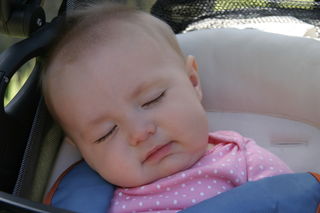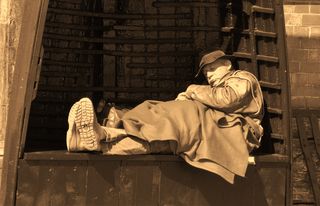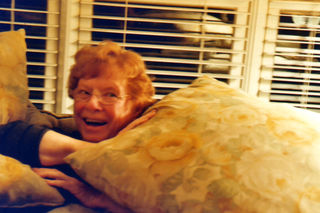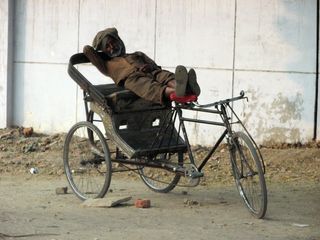Sleep
Sleepless in Your 60s?
The surprising truth about sleep and aging.
Posted December 8, 2019 Reviewed by Gary Drevitch
This is the second installment of “The Sleep Suite,” a six-part series of posts on sleep, aging, and wellness. Each will include practical takeaways intended to optimize your physical and psychological health.

“Sleeping like a baby”: vaguely ageist or true? A little of both. Infants and toddlers need the most sleep, get the greatest amount of it, and enjoy the deepest kind. By age two, most children have spent more time asleep than awake. Maybe sleep also gets wasted on the young?
The “bad” news
No doubt, aging changes lots of things: skin loses its elasticity, muscles atrophy, bones weaken, and sensory acuity lessens. Many adults expect their sleep to deteriorate with age, too.
And the expectation makes sense: Objectively, older adults (OAs) demonstrate more macro and micro-level changes suggestive of sleep deterioration than younger people. Common macro-level, or “architectural,” sleep changes with aging include less total sleep time (TST), longer sleep onset latency (SoL), reduced sleep efficiency (SE), increased wake after sleep onset (WASO), as well as more time spent in the superficial, non-REM (NREM) stages of sleep. Micro-level changes, those measured with electroencephalography (EEG), indicate decrements in slow-wave activity (SWA), as well as the frequency, amplitude, and density of sleep spindles, believed to contribute to brain’s recovery, metabolism, and memory processes.

Prevalence of insomnia and risk for obstructive sleep apnea also appear to increase with age, reinforcing the notion that good sleep retires with you.
The reasons for these changes remain unclear. Some research has shown significant deterioration of hypocretin/orexin, arousal/wakefulness-promoting neuropeptides, in the human hypothalamus. Other studies report desensitization and widespread loss of A1 adenosine receptors, used to accumulate sleepiness-driving adenosine throughout the day. Additional reasons include common physical and psychological comorbidities accompanying aging, including obesity, diabetes, polyuria, chronic pain, depression, and anxiety that may contribute to issues initiating and/or maintaining sleep in later life.
Do we sleep less as we age because we need less? Or do we need more than we can get, and just lack the ability to produce that which we still need? Current evidence has more support for the latter.
Though extracellular adenosine actually increases with age, the loss of A1 receptors, combined with other neuronal changes in the aging brain’s sleep center, appears to dysregulate sleep drive in later life. Instead of reducing the need for sleep, aging instead appears to desensitize the neural apparatus for regulating a still present sleep need.

The (very) good news
But getting older should not, and does not, have to mean sleeping poorly. Although sleep measures suggest that older adults sleep objectively worse, older adults sleep subjectively as well as or better than younger adults.
According to newer data, concerns of sleep disturbance and daytime fatigue may actually decrease with age. One study, for example, found that the youngest groups reported the highest levels of sleep disturbance—rates of which declined into the 30s, spiked in middle age, and declined again until they reached their nadir in the oldest groups.
In another study comparing adults older or younger than 65, those 65 and older reported more insomnia symptoms (i.e. difficulties initiating and maintaining sleep) but fewer problems with sleep duration and daytime fatigue. Subjective measures of overall sleep quality and general wellbeing between groups also yielded no differences. Other studies have echoed these results, finding that the prevalence of ‘sufficient sleep’ appeared higher in an older (age 65-99), compared to a younger group (age 19-20). Further, the same group of OAs further reported ‘greater ease of awakening’ and ‘freshness after awakening’, and no differences in ease of falling asleep.
These patterns suggest that the subjective experiences of sleep later may meet or exceed those earlier in life. Thus, although many have reported age-related decrements in sleep objectively, overall, older adults do not appear to perceive or report these changes as problematic subjectively. A number of reasons may explain why: differences in normative expectations of sleep? A downplaying of sleep difficulties? Cohort differences in attitudes and beliefs about its importance? Better coping and emotional regulation? We’ll need more research to clarify.

Implications and takeaways
For providers and older adults themselves, the lessons somewhat differ:
For clinicians and other providers:
- Pay attention to whether your patient volunteers or you elicit their sleep concern. Older adults very rarely complain about poor sleep, even though they objectively score poorly on common measures of sleep quality. As a result, if an older adult does bring a sleep concern to your attention, you should take it seriously, evaluating and treating it accordingly.
For older adults:
- Sleep plays too important a role in your health for stoicism. Ask yourself honestly: Does my current sleep pattern cause distress or functional impairment? Does this pattern feel like a significant change for me?
- Not sure? Start logging your sleep using this sleep diary and see what you find.
- If you’ve decided that your sleep changes feel significant and impairing, (1) bring your concerns to your geriatrician or other healthcare provider; (2) advocate for an overnight sleep study; and/or (3) request a referral to a sleep psychologist.
And even if you do have subjectively poor sleep, sleep soundly knowing that plenty of safe, effective, and evidence-based behavioral treatments exist to improve it.
Sweet dreams for now.




